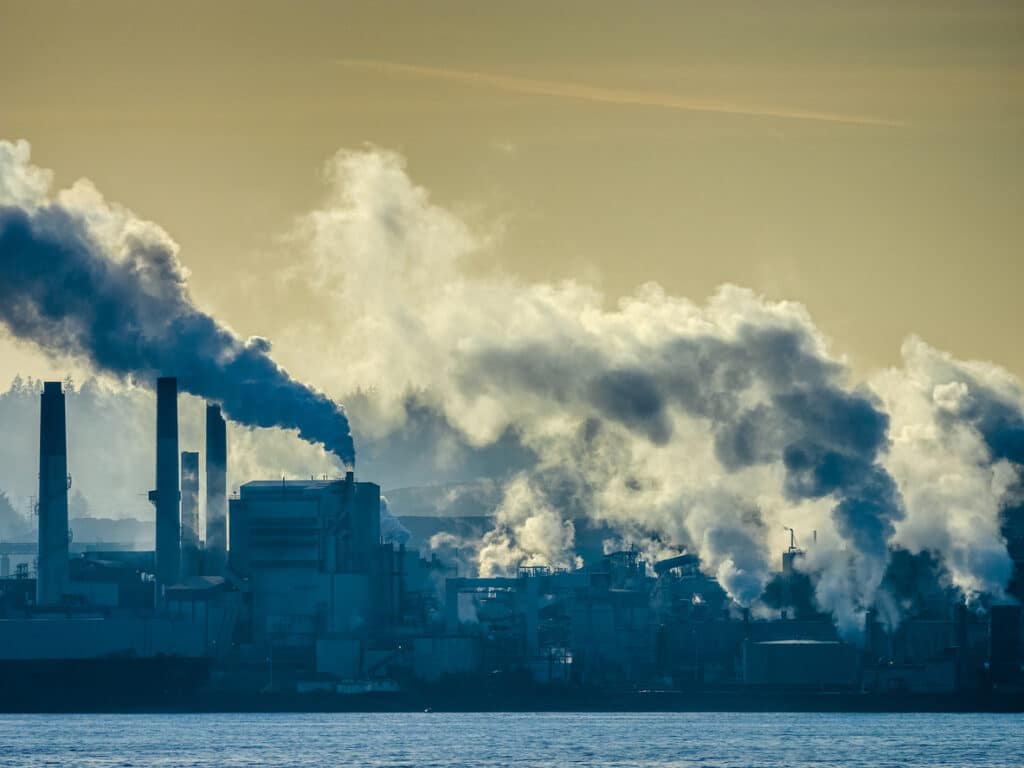On April 15, Senator Elizabeth Warren (D-MA) and Representative Sean Casten (D-IL) introduced the Climate Risk Disclosure Act of 2021, which requires publicly traded companies to make more disclosures about their exposure to climate-related risks. Last summer, the National Whistleblower Center (NWC), which endorses the bill, released a special report detailing how fossil fuel companies have consistently downplayed and concealed the risks climate change poses to their financial condition and to the economy at large. NWC believes that whistleblowers would play a key role in enforcing climate risk disclosure requirements.
The Climate Risk Disclosure Act directs the U.S. Securities and Exchange Commission (SEC) to implement rules requiring climate risk disclosures. According to Senator Warren’s press release, under the Act every public company would be required to disclose:
- “Its direct and indirect greenhouse gas emissions;
- The total amount of fossil-fuel related assets that it owns or manages;
- How its valuation would be affected if climate change continues at its current pace or if policymakers successfully restrict greenhouse gas emissions to meet the 1.5 degrees Celsius goal; and
- Its risk management strategies related to the physical risks and transition risks posed by the climate crisis.”
The Act is meant to foster market transparency, allowing investors to “appropriately assess climate-related risks and accelerate the market transition from fossil fuels to cleaner and more sustainable energy sources that mitigate climate change.” While the SEC suggests that companies consider the effects of climate change on company assets, it does not currently mandate that companies disclose their exposure to climate-related risks.
“It’s time to wake up and fight back against giant corporations that want to pollute our environment and ask taxpayers to clean up the mess,” said Senator Warren in the press release. “I’m glad to reintroduce the Climate Risk Disclosure Act to give investors, and the American public, the power to hold corporations accountable for their role in the climate crisis.”
Warren previously introduced an earlier version of the Act in the last Congress. In August 2020, she sent a letter to the SEC urging them to implement climate risk disclosure requirements even without the passage of the Act. In this letter, she extensively cited NWC’s report Exposing a Ticking Time Bomb: How Fossil Fuel Industry Fraud is Setting Us Up for a Financial Implosion – and What Whistleblowers Can Do About It.
In her letter, Warren quotes the NWC report, which states “the fossil fuel sector is a prime example of an industry sector with incentives to commit fraud given that its financial stability and profitability are greatly threatened by industry conditions and larger economic trends.” Senator Warren then asks the SEC “without standard, mandatory climate risk disclosures, how is the SEC addressing potential harmful incentives and conflicts of interest in the disclosure of material climate-related risks in the fossil fuel industry?”
The NWC report also outlines the key role whistleblowers can—and should—play in fighting climate risk fraud. Withholding information and downplaying risks to investors are prosecutable offenses of securities laws. The SEC Whistleblower Program is a highly successful program with strong incentives (monetary awards) and protections (including anonymity) for whistleblowers. According to the report, whistleblowers are in a unique and essential position to uncover fraud and can play a leading role in transforming the fossil fuel industry, like they did in the tobacco, healthcare, and banking sectors. The report points to Bradley Birkenfeld, UBS bank whistleblower, as a prime example of the transformative role whistleblowers can play.
“Although improvements to climate risk disclosure rules and whistleblower laws are needed in the U.S. and around the world, the existing U.S. whistleblower legal regime offers great promise for producing near-term results in the battle against climate risk fraud by fossil fuel companies,” NWC’s report states.
“Climate change poses a grave and imminent threat to the stability of our financial system and its ability to sustain our economy,” said Representative Casten. “Senator Warren and I introduced the Climate Risk Disclosure Act requiring publicly traded companies to disclose their climate related risks to provide investors with unambiguous disclosures to accurately convey their exposure to this massive and rapidly growing risk. The right time to safeguard our financial system against climate change was a decade ago, but our last chance is now.”
Read:
